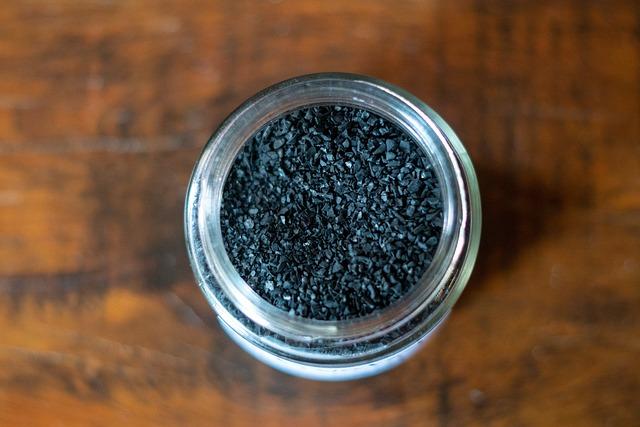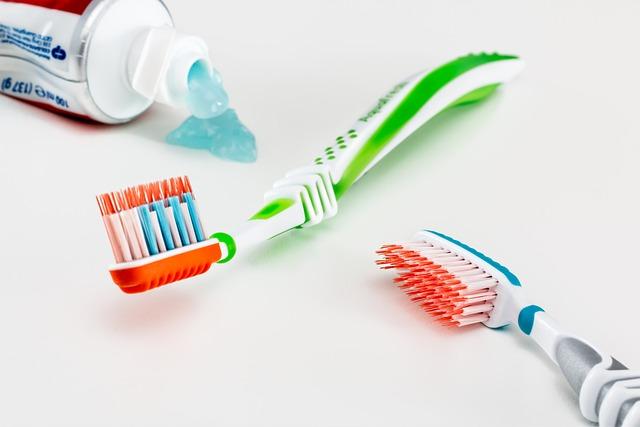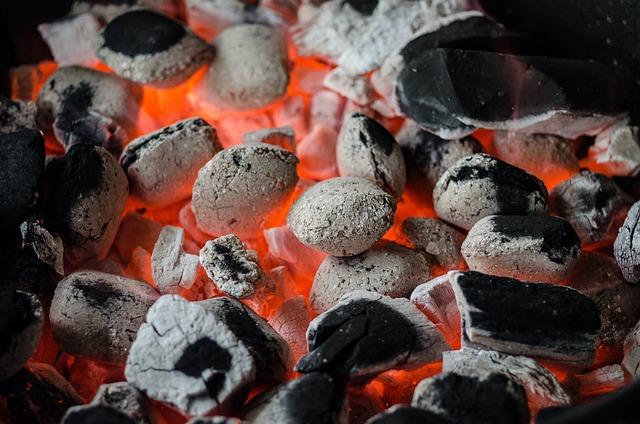Charcoal Toothpaste for Whitening: Does It Work?
Welcome to the world of dental care where innovation continues to astound us! One of the latest trends that has left tongues wagging (and brushing) is charcoal toothpaste for whitening. Yes, you read that right – charcoal! But before you grab your toothbrush and run to your nearest store, let’s delve into the matter and answer the pressing question on everyone’s minds: Does it actually work? In this article, we will explore the merits and effectiveness of charcoal toothpaste for whitening. So, sit tight and prepare to dive into the realm of dental enchantment!
Contents
- 1. Understanding the Science behind Charcoal Toothpaste: How Does it Work for Teeth Whitening?
- 2. Debunking Myths: Separating Facts from Fiction about Charcoal Toothpaste for Whitening
- 3. The Pros and Cons: Exploring the Benefits and Limitations of Charcoal Toothpaste
- 4. Effectiveness Examined: Does Charcoal Toothpaste Actually Whiten Teeth?
- Does Charcoal Toothpaste Actually Whiten Teeth?
- 5. Safety First: Assessing the Potential Risks and Side Effects of Charcoal Toothpaste
- 6. Expert Recommendation: Is Charcoal Toothpaste a Viable Option for Teeth Whitening?
- 7. Best Practices: How to Effectively Use Charcoal Toothpaste for Optimum Whitening Results
- 8. Enhanced Oral Health: Additional Dental Benefits of Charcoal Toothpaste beyond Whitening
- 9. Alternatives to Consider: Comparing Charcoal Toothpaste with Other Teeth Whitening Methods
- 10. Final Verdict: Should You Try Charcoal Toothpaste for Whitening
- In Summary
1. Understanding the Science behind Charcoal Toothpaste: How Does it Work for Teeth Whitening?
Charcoal toothpaste has gained popularity in recent years as a natural alternative for teeth whitening. But how exactly does it work? Let’s dive deep into the science behind charcoal toothpaste and its effectiveness in brightening your smile.
Activated charcoal is the key ingredient in charcoal toothpaste that sets it apart from traditional toothpaste. This fine black powder is highly porous and has an adsorptive property, meaning it attracts and binds to toxins and impurities on its surface. When it comes to teeth whitening, activated charcoal acts like a magnet, binding to stains and toxins that are responsible for discoloration.
One of the main reasons why people turn to charcoal toothpaste is its ability to remove extrinsic stains, such as those caused by coffee, tea, or tobacco. These stains occur on the outer layer of the tooth enamel and can be effectively lifted by the adsorptive action of activated charcoal. However, it’s important to note that charcoal toothpaste may not have the same impact on intrinsic stains, which are deep-set and occur within the tooth structure.
It’s also worth mentioning that charcoal toothpaste typically contains other beneficial ingredients such as baking soda and essential oils. Baking soda helps to neutralize acid and scrub away plaque, while essential oils provide a refreshing flavor and contribute to overall oral hygiene. Combining these components with activated charcoal creates a powerful teeth-whitening formula that can help restore the natural brightness of your smile.
To achieve optimal results, it’s recommended to use charcoal toothpaste consistently. However, it’s important to use it in moderation as the abrasive nature of activated charcoal can potentially erode tooth enamel if used excessively. Additionally, it’s always a good idea to consult with your dentist before incorporating charcoal toothpaste into your oral hygiene routine, especially if you have sensitive teeth or existing dental conditions.
In summary, charcoal toothpaste works by using activated charcoal’s adsorptive properties to remove surface stains from teeth. While it may not be as effective on intrinsic stains, it can still provide noticeable results in brightening your smile. Remember to use charcoal toothpaste in moderation and consider seeking professional advice for a personalized dental care approach.
2. Debunking Myths: Separating Facts from Fiction about Charcoal Toothpaste for Whitening
Charcoal toothpaste for whitening has gained popularity in recent years, with many people claiming its effectiveness in achieving a brighter smile. However, it is important to separate the facts from the fiction surrounding this trending oral care product.
Myth 1: Charcoal Toothpaste Whitens Teeth Instantly
Contrary to popular belief, charcoal toothpaste does not provide instant whitening results. While it may remove surface stains, it does not penetrate the tooth enamel to change the natural color of your teeth. The black color of the toothpaste can create an optical illusion, making your teeth appear temporarily whiter. For long-term whitening effects, professional treatments or whitening strips are more effective options.
Myth 2: Charcoal Toothpaste Destroys Tooth Enamel
Another common misconception is that charcoal toothpaste erodes tooth enamel. However, reputable charcoal toothpaste brands are safe to use and do not harm your enamel when used as directed. It is essential to choose a toothpaste that has been evaluated and approved by dental professionals to ensure both effectiveness and safety.
Myth 3: Charcoal Toothpaste is Suitable for Everyone
While charcoal toothpaste may work well for some individuals, it is not suitable for everyone. People with sensitive teeth or gum problems should exercise caution when using charcoal toothpaste, as it may exacerbate their issues. It is advisable to consult a dentist before incorporating charcoal toothpaste into your oral care routine.
Table: Charcoal Toothpaste vs. Traditional Toothpaste
| Charcoal Toothpaste | Traditional Toothpaste | |
|---|---|---|
| Whitening Effect | Temporary | Gradual |
| Abbrasion | Low | Medium |
| Fluoride Content | Varies | Consistent |
| Dental Professional Approval | Varies | Common |
Overall, while charcoal toothpaste can be a part of your oral care routine, it is important to be aware of the myths and facts surrounding its efficacy. It is advisable to consult a dental professional and determine if charcoal toothpaste is the right choice for your specific dental needs.

3. The Pros and Cons: Exploring the Benefits and Limitations of Charcoal Toothpaste
Charcoal toothpaste has gained significant popularity in recent years as a natural and effective remedy for teeth whitening. This alternative toothpaste contains activated charcoal, which is known for its ability to absorb toxins and impurities. However, like any oral care product, it has its pros and cons. Let’s explore the benefits and limitations of using charcoal toothpaste.
Benefits of Charcoal Toothpaste:
- Teeth Whitening: One of the primary reasons people turn to charcoal toothpaste is for its teeth whitening properties. Activated charcoal has a porous structure that helps remove surface stains and discoloration from the teeth, resulting in a brighter smile.
- Natural Ingredients: Charcoal toothpaste is often made from natural ingredients, which is appealing to those who prefer a more holistic approach to oral care. It is free from harsh chemicals and artificial additives, making it a gentler option for sensitive teeth and gums.
- Improves Oral Health: Charcoal toothpaste can also contribute to better oral health. It has antibacterial properties that can help reduce harmful bacteria in the mouth and prevent cavities and bad breath. Additionally, the activated charcoal can help detoxify the mouth by absorbing toxins and impurities.
Limitations of Charcoal Toothpaste:
- Abrasive Nature: One drawback of charcoal toothpaste is its abrasive nature. The rough texture of activated charcoal particles can be too harsh on tooth enamel if used excessively or with aggressive brushing. It is important to use charcoal toothpaste in moderation and with gentle brushing techniques to avoid enamel erosion.
- Limited Effectiveness: While charcoal toothpaste can be effective in removing surface stains, it may not provide long-lasting whitening results or penetrate deeper stains. In severe cases of discoloration, professional dental treatments may be required for more significant whitening.
- Messy Application: Charcoal toothpaste can be messy to use due to its black color. It may leave stains on bathroom surfaces, sink, and toothbrush. Extra care should be taken when using charcoal toothpaste to avoid unwanted mess.
In conclusion, using charcoal toothpaste can offer several benefits, such as teeth whitening, natural ingredients, and improved oral health. However, it is essential to consider its limitations, including its abrasive nature, limited effectiveness for deep stains, and the potential for mess during application. Consulting with a dentist can help determine if charcoal toothpaste is suitable for your oral care routine and if it aligns with your specific dental needs.

4. Effectiveness Examined: Does Charcoal Toothpaste Actually Whiten Teeth?
Does Charcoal Toothpaste Actually Whiten Teeth?
Charcoal toothpaste has gained popularity in recent years as a natural alternative for teeth whitening. With its distinct dark color and claims of removing stains, many wonder if it truly lives up to the hype. Let’s examine the effectiveness of charcoal toothpaste in achieving whiter teeth.
How does charcoal toothpaste work?
Charcoal toothpaste contains activated charcoal, which is a form of carbon that has been heated to create small pores. These pores help absorb toxins, impurities, and stains from the teeth’s surface.
When used, the charcoal particles bind to the surface of the teeth, trapping stains and plaque. This physical action, combined with the mildly abrasive texture of charcoal toothpaste, can help remove surface stains and leave teeth looking brighter.
Factors to consider
While charcoal toothpaste may provide noticeable whitening effects for some individuals, it’s essential to consider the following factors:
- Existing tooth discoloration: Charcoal toothpaste tends to be more effective in removing surface stains caused by beverages like coffee, tea, and red wine. However, it may not be as effective for intrinsic stains that originate from within the tooth.
- Frequency of use: Regular use of charcoal toothpaste is key to achieving noticeable results. Consistency is crucial, as the whitening effects may be gradual and may take several weeks to become noticeable.
- Enamel sensitivity: Charcoal toothpaste is slightly more abrasive than traditional toothpaste. If you have sensitive teeth or thin enamel, it’s advisable to consult with your dentist before adding charcoal toothpaste to your oral hygiene routine.
The verdict
While charcoal toothpaste can contribute to teeth whitening, its effectiveness may vary from person to person. It is not a substitute for professional teeth whitening treatments, but it can be used as part of a comprehensive oral care routine to maintain a brighter smile. Remember to consult with your dentist before incorporating any new products into your dental regimen, especially if you have underlying dental conditions.

5. Safety First: Assessing the Potential Risks and Side Effects of Charcoal Toothpaste
When it comes to achieving a brighter, whiter smile, many people have turned to charcoal toothpaste as a popular alternative to traditional whitening products. However, before jumping on the charcoal toothpaste bandwagon, it’s important to assess the potential risks and side effects associated with this trendy product.
Abrasive Nature: One concern surrounding charcoal toothpaste is its abrasive nature. The charcoal particles found in these toothpaste formulas can be quite gritty and rough on tooth enamel. While some dentists argue that the charcoal particles are too small to cause significant enamel damage, it’s worth considering that excessive use or aggressive brushing techniques could potentially wear down the protective layer of your teeth over time.
Lack of Fluoride: Another key aspect to consider is the absence of fluoride in most charcoal toothpaste brands. Fluoride is a mineral that helps prevent tooth decay and strengthens enamel. Since most charcoal toothpastes do not contain fluoride, it’s essential to ensure that you are incorporating fluoride treatments into your dental routine, such as using a fluoride mouthwash or toothpaste, to maintain oral health.
Staining Potential: While charcoal toothpaste is known for its ability to remove stains on the teeth’s surface, it ironically possesses the potential to create new stains. The dark color of charcoal can leave residue on the gum line and in between teeth, resulting in an undesirable appearance. Regular and proper rinsing after brushing can help counteract this staining effect.
It’s important to note that every individual’s dental health needs are unique, and what works for some may not work for others. Before incorporating charcoal toothpaste into your oral care routine, it’s always best to consult with your dentist or dental professional to ensure it aligns with your individual needs and to address any concerns you may have. Remember, maintaining good oral hygiene habits, such as regular brushing, flossing, and dental check-ups, is always the foundation for a healthy smile.

6. Expert Recommendation: Is Charcoal Toothpaste a Viable Option for Teeth Whitening?
In today’s quest for a dazzling smile, charcoal toothpaste has become a popular option for teeth whitening. But is it truly an effective solution, or just another fad? Let’s turn to the experts for their recommendations on whether charcoal toothpaste is a viable option for teeth whitening.
1. Dentist-approved: Dentists generally agree that charcoal toothpaste can help remove surface stains and promote a brighter smile. Its activated charcoal ingredient works by binding to the chemicals that cause discoloration on the teeth, lifting them away. However, it’s important to note that charcoal toothpaste may not be suitable for everyone, especially those with sensitive teeth or existing dental concerns. Consult with your dentist to determine if it’s a suitable option for you.
2. Results may vary: While many people have reported positive results with charcoal toothpaste, it’s essential to manage our expectations. Teeth whitening is a gradual process, and the extent of improvement may vary from person to person. Your lifestyle habits, such as consuming stain-causing foods and drinks, will also impact the longevity of the results. Regular brushing with charcoal toothpaste, along with maintaining good oral hygiene practices, can contribute to a whiter smile over time.
3. Considerations to keep in mind: Before incorporating charcoal toothpaste into your dental routine, there are some key considerations to bear in mind. First, as charcoal is naturally abrasive, excessive or aggressive brushing can lead to enamel erosion. It’s crucial to follow the manufacturer’s instructions and brush gently. Additionally, charcoal toothpaste may not be as effective in removing deeper stains or altering the color of dental restorations such as crowns or veneers. It’s always advisable to consult your dentist for personalized advice.
Remember, teeth whitening should always be approached with caution and under professional guidance. While charcoal toothpaste can be a valuable addition to your oral care routine, it’s essential to use it responsibly and not rely solely on it for achieving a pearly white smile. Combine it with regular dental visits, professional teeth cleaning, and a healthy lifestyle for optimum results.
| Cleaning Technique | Effectiveness |
|---|---|
| Charcoal Toothpaste | Removes surface stains, promotes a brighter smile |
| In-office Teeth Whitening | Significantly whitens teeth, immediate results |
| At-home Whitening Strips | Gradual improvement, convenience |
| Natural Remedies (e.g., baking soda) | Mild whitening effect, budget-friendly |
As always, consult a dental professional before making any decisions about teeth whitening products or procedures. They can assess your unique dental condition and provide expert advice tailored to your specific needs. Ultimately, a healthy smile shines brighter than a merely white one.
7. Best Practices: How to Effectively Use Charcoal Toothpaste for Optimum Whitening Results
Charcoal toothpaste has become increasingly popular in recent years for its potential to deliver whiter and brighter teeth. However, to achieve those optimum whitening results, it’s important to understand how to effectively use charcoal toothpaste. Here are some best practices to keep in mind:
1. Start with a clean toothbrush
Before applying the charcoal toothpaste, make sure your toothbrush is clean. Rinse it with warm water to remove any residue from previous uses. This helps ensure the toothpaste’s effectiveness and prevents any potential contamination.
2. Use a pea-sized amount of toothpaste
Unlike regular toothpaste, charcoal toothpaste works best in smaller amounts. A pea-sized dab on your toothbrush is sufficient for a thorough cleaning. Using too much can be abrasive and may harm your tooth enamel.
3. Gently brush in circular motions
To maximize the whitening power of charcoal toothpaste, it’s important to brush your teeth gently in circular motions. This helps evenly distribute the charcoal particles and effectively remove surface stains. Avoid harsh brushing, as it can damage your gums and tooth enamel.
4. Rinse thoroughly and follow with regular toothpaste
After brushing with charcoal toothpaste, make sure to rinse your mouth thoroughly to remove any lingering traces of charcoal particles. Then, brush again with your regular toothpaste to ensure complete oral hygiene. Charcoal toothpaste is not a replacement for regular toothpaste, but rather a complementary whitening solution.
By following these best practices, you can harness the potential of charcoal toothpaste and achieve optimum whitening results. Remember, consistency is key, so incorporate charcoal toothpaste into your daily oral care routine for best outcomes. However, it’s worth noting that individual results may vary, and it’s always advisable to consult with your dentist to determine if charcoal toothpaste is suitable for your specific dental needs.
| Key Point | Explanation |
|---|---|
| Start with a clean toothbrush | Prevent potential contamination and ensure toothpaste effectiveness. |
| Use a pea-sized amount of toothpaste | Avoid excessive abrasion and potential harm to tooth enamel. |
| Gently brush in circular motions | Maximize the whitening power and protect your gums and tooth enamel. |
| Rinse thoroughly and follow with regular toothpaste | Complete oral hygiene routine and ensure comprehensive cleaning. |
8. Enhanced Oral Health: Additional Dental Benefits of Charcoal Toothpaste beyond Whitening
While it is true that charcoal toothpaste has gained popularity for its effective teeth whitening properties, its benefits extend far beyond creating a radiant smile. Here are some additional dental advantages that charcoal toothpaste brings to the table:
- Deep Cleansing: Charcoal toothpaste possesses absorbent qualities that help remove toxins and impurities from your mouth. Its active charcoal ingredient absorbs harmful bacteria and plaque, providing a deep cleansing action that regular toothpaste may not achieve.
- Natural Fresh Breath: The natural antibacterial properties found in charcoal toothpaste can help combat bad breath. By neutralizing odor-causing bacteria, it leaves your mouth feeling fresh and smelling great throughout the day.
- Gum Health: Charcoal toothpaste can promote healthier gums by reducing inflammation and preventing the growth of harmful bacteria. Its gentle yet effective formula helps maintain gum health, reducing the risk of gum disease and gingivitis.
- Sensitivity Relief: Some charcoal toothpaste brands include ingredients that provide relief for individuals with sensitive teeth. By strengthening the enamel and desensitizing nerve endings, it can help alleviate discomfort and enhance overall oral well-being.
In addition to these benefits, using charcoal toothpaste can help you maintain excellent oral hygiene when used as part of a comprehensive dental care routine. It is important to note that while charcoal toothpaste can be effective, it should not replace regular visits to your dentist for professional cleanings and check-ups. Remember to choose a reputable brand and follow the instructions for optimal results.

9. Alternatives to Consider: Comparing Charcoal Toothpaste with Other Teeth Whitening Methods
When it comes to teeth whitening, charcoal toothpaste has gained significant popularity in recent years. However, it’s important to understand the alternatives available in order to make an informed decision. Let’s compare charcoal toothpaste with other teeth whitening methods:
Laser Teeth Whitening:
Laser teeth whitening is a professional treatment that delivers quick and noticeable results. It involves the application of a bleaching gel on your teeth, which is then activated by a laser. The light from the laser helps to accelerate the whitening process. While this method can be quite effective, it can also be expensive and may cause temporary tooth sensitivity.
Whitening Strips:
Whitening strips are a convenient and affordable option for teeth whitening. These thin, flexible strips are coated with a peroxide-based gel that is applied directly to the teeth. They are left on for a specified period of time and then removed. Although whitening strips can provide noticeable results, they may not be suitable for everyone, especially those with sensitive teeth or gum problems. Additionally, they may not be as effective in removing deep stains.
Professional Teeth Whitening Trays:
Professional teeth whitening trays are custom-made by a dentist to fit your teeth perfectly. These trays are filled with a whitening gel and worn for a specific amount of time each day. This method allows for consistent and controlled whitening. The custom fit ensures that the gel reaches all the nooks and crannies of your teeth. Though more expensive than over-the-counter options, professional whitening trays offer impressive and long-lasting results.
Charcoal Toothpaste:
Charcoal toothpaste is a natural alternative that uses activated charcoal to remove stains from the teeth. Its gritty texture helps to scrub away surface stains, resulting in a brighter smile. While charcoal toothpaste can be effective for minor stains, it may not be as efficient in removing deep discoloration. Additionally, it is crucial to choose a charcoal toothpaste that is ADA-approved to ensure its safety for use.
Ultimately, the best teeth whitening method varies depending on individual preferences and needs. It’s advisable to consult with a dentist for an evaluation and recommendation based on your specific dental condition. Whether you choose charcoal toothpaste or another whitening method, maintaining good oral hygiene practices and regular dental check-ups will contribute to a healthier and brighter smile.
10. Final Verdict: Should You Try Charcoal Toothpaste for Whitening
After reviewing the effectiveness of charcoal toothpaste for whitening, it’s time to answer the burning question: should you try it? The answer depends on several factors and personal preferences. Here are the key points to consider:
1. Stain Removal:
Charcoal toothpaste is known for its ability to remove surface stains effectively. It works by absorbing the impurities and toxins that cause discoloration. If you struggle with coffee, tea, or tobacco stains, charcoal toothpaste might be a game-changer for you.
2. Whitening Power:
While charcoal toothpaste can help restore your teeth’s natural whiteness and brightness, it’s important to set realistic expectations. It may not be as effective for deep intrinsic stains or discoloration caused by certain medications or dental conditions. In such cases, professional teeth whitening treatments might offer better results.
3. Oral Health Benefits:
One advantage of charcoal toothpaste is the potential improvement in oral health. It can help remove plaque and prevent tartar buildup, leading to fresher breath and healthier gums. However, it’s crucial to choose a charcoal toothpaste that contains fluoride to ensure it provides adequate protection against tooth decay.
4. Sensitivity Concerns:
Some individuals may experience tooth sensitivity when using charcoal toothpaste due to its abrasiveness. If you have sensitive teeth or existing dental conditions, it’s wise to consult with your dentist before incorporating it into your oral care routine.
In conclusion, if you are looking for a natural and effective way to remove surface stains, charcoal toothpaste could be worth a try. However, for more stubborn stains or underlying dental issues, consulting a dentist is advised. Remember, maintaining good oral hygiene practices and regular dental visits are essential for a healthy and radiant smile.
In Summary
In conclusion, while the use of charcoal toothpaste may seem like a promising solution for teeth whitening, it’s important to approach this trend with caution. The evidence supporting its effectiveness is limited, and it may not be suitable for everyone.
Key Takeaways:
1. Charcoal toothpaste is a popular trend due to its potential whitening properties.
2. However, there is limited scientific evidence to support its effectiveness.
3. Charcoal toothpaste can be abrasive and may lead to tooth sensitivity and enamel erosion.
4. It’s important to consult with a dentist before incorporating charcoal toothpaste into your oral care routine.
5. For safe and effective teeth whitening, professional dental treatments or products approved by dental associations may be more reliable options.
Remember, maintaining good oral hygiene practices such as regular brushing, flossing, and professional dental cleanings are essential for maintaining a healthy and bright smile.








 BREAKING DENTAL DISCOVERY:
BREAKING DENTAL DISCOVERY:  Limited supply - 83% of today's inventory already claimed!
Limited supply - 83% of today's inventory already claimed!